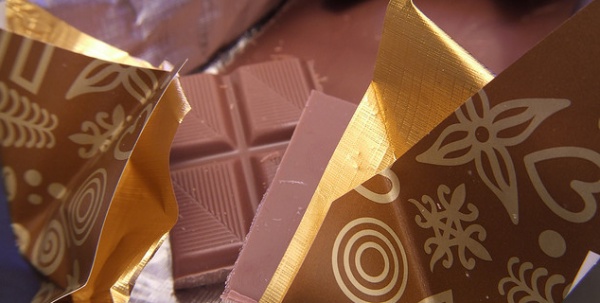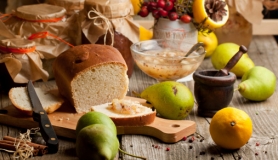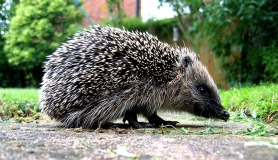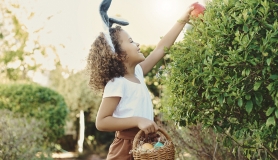But our addiction can come at a cost. Cocoa farmers, mostly from Africa and the Americas, are some of the poorest people in the world and many of them can’t afford food, medicine, clean water or school for their children. There are environmental consequences of cocoa farming such as deforestation, plus allegations of child slavery and child trafficking in the cocoa industry.
In 1992, the Fairtrade Foundation was formed to ensure better prices, decent working conditions, local sustainability, and fair terms of trade for farmers and workers in the developing world. By requiring companies to pay sustainable prices (which must never fall lower than the market price), Fairtrade continues to address the injustices of conventional trade, which traditionally discriminates against the poorest and weakest producers. Fairtrade offers farmers and workers the opportunity to earn a fair wage, improve their position and have more control over their lives. Education, housing and healthcare initiatives in some of the poorest countries have been set up as a result of Fairtrade. See information below on Divine Chocolate to find out more about the first farmer-owned chocolate company.
Chocolate Week from 8 – 14th Oct is a celebration of all the delicious and diverse confectionaries and the artisans that make them. We’ve come up with our top six ethical chocolate companies, so you can enjoy a bar or two this Chocolate Week with a clear conscience.
Traidcraft
Traidcraft produced the very first bar of Fairtrade chocolate and they describe their products as ‘not just chocolate, but hope in a bar’. Every bite of their great-tasting, quality chocolate also offers the sweet taste of trade justice for small-scale cocoa and sugar farmers in some of the world’s poorest countries. With a delicious and affordable range of organic chocolate, from truffles through to snack bars, there’s plenty to choose from.
Divine and Dubble
In 1993, a small group of cocoa framers in Ghana, West Africa realised that by working together they could get more money from the people who bought their cocoa. They pooled their resources and set up their own business called Kuapa Kokoo which means “good cocoa farmer” in their local language of Twi. In 1998, Kuapa Kokoo joined forces with a group of UK organisations who care about getting cocoa farmers a better deal and the first farmer-owned Fairtrade chocolate bar, Divine, was born. In January 2000, Comic Relief teamed up with Kuapa Kokoo and The Day Chocolate Company to create a chocolate bar for young people called Dubble. Delicious and affordable, Divine chocolate is available at most supermarkets and Oxfam nationwide.
Montezuma’s
If you’re looking for some luxury and want to experiment with different chocolate flavours, then Montezumas is the company for you. Set up by husband and wife team, Simon and Helen Pattinson in 2000, with only a kitchen sink sized machine, huge enthusiasm, and a broad ideal to bring chocolate innovation to a boring and staid British chocolate market, it has gone from strength to strength. Their Trading Fairly Policy covers everything from how they work with suppliers, how much packaging they use, how they dispose of rubbish to how ingredients are farmed. Check out their flavour ranges such as Chilli and Lime, and Orange and Geranium dark chocolate – wow!
Equal Exchange
Equal Exchange has created Big Change since 1986. The founders envisioned a food system that empowers farmers and consumers, supports small farmer co-ops, and uses sustainable farming methods. They started with fairly traded coffee from Nicaragua and didn’t look back. Today, they continue to find new and powerful ways to build a better food system. They partner with co-operatives of farmers who provide high-quality organic coffees, teas, chocolates, bananas, olive oil, and almonds. With a small range of organic chocolate exploding with flavour, there’s chocolate to tempt vegan and gluten-free palates too.
Booja Booja
For completely guilt-free, decadent luxury, you can’t go wrong with Booja Booja Chocolates. They’re some of the more expensive chocolates on the market, but are designed to be savoured and enjoyed in small measures. Booja Booja have been working with Pacari Chocolate, an Ecuadorean family-owned company built on strong socially and environmentally sustainable principles, for five years. They are dedicated to the organic way and to preserving Ecuador’s prestigious native Arriba Nacional cacao. Everything Booja Booja make in Norfolk is dairy free, vegan, and organic. There are 8 sumptuous truffle flavours and 5 mouth-watering Alternative to Dairy Ice Cream flavours to choose from. As they state: ‘Everyone needs a little Booja Booja now and then!’
The Raw Chocolate Company
At the Raw Chocolate Company they believe healthy living is about saying ‘YES!’…to life, love… and chocolate! Raw chocolate is gradually gaining in popularity as people begin to explore the health benefits of eating raw. Un-heated cacao contains over 300 nutritional compounds, is a great source of anti-oxidants and essential minerals, and contains the natural ‘love molecule’ PEA. Basically, it makes you feel good and is good for you into the bargain! The Raw Chocolate Company is certified Fairtrade, and their chocolate is lovingly produced and free from sugar, dairy, and gluten.







